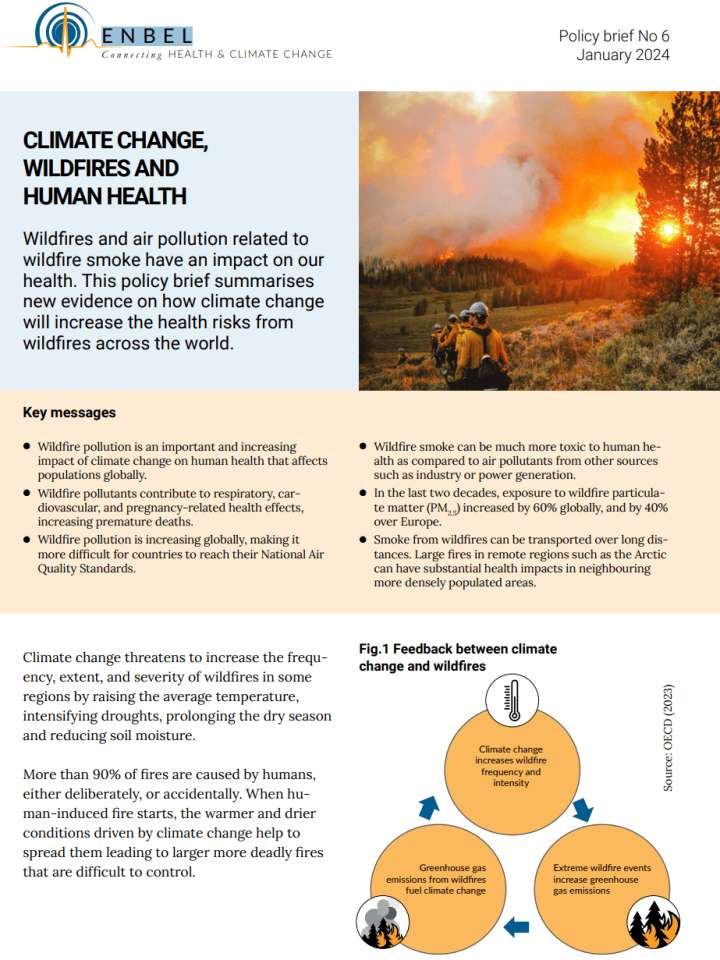Climate change, wildfires, and human health
The policy brief presents a summary of the research conducted by the ACRoBEAR and HEATCOST projects funded by the Belmont Forum and the EXHAUSTION project funded by the EU’s Horizon 2020 programme. This policy brief summarises new evidence on how climate change will increase the health risks from wildfires across the world.
These are the key messages the policy brief entail:
- Wildfire pollution is an important and increasing impact of climate change on human health that affects populations globally.
- Wildfire pollutants contribute to respiratory, cardiovascular, and pregnancy-related health effects, increasing premature deaths.
- Wildfire smoke can be much more toxic to human health as compared to air pollutants from other sources such as industry or power generation.
The following recommendations are particularly useful for policy makers:
- Strengthen capacity for monitoring and assessing the health impacts of wildfires e.g., establishing surveillance systems to track respiratory illnesses and other health conditions related to wildfire smoke exposure.
- Prioritise the development and implementation of comprehensive wildfire management strategies that focus on prevention, early detection, and rapid response.
Explore further
